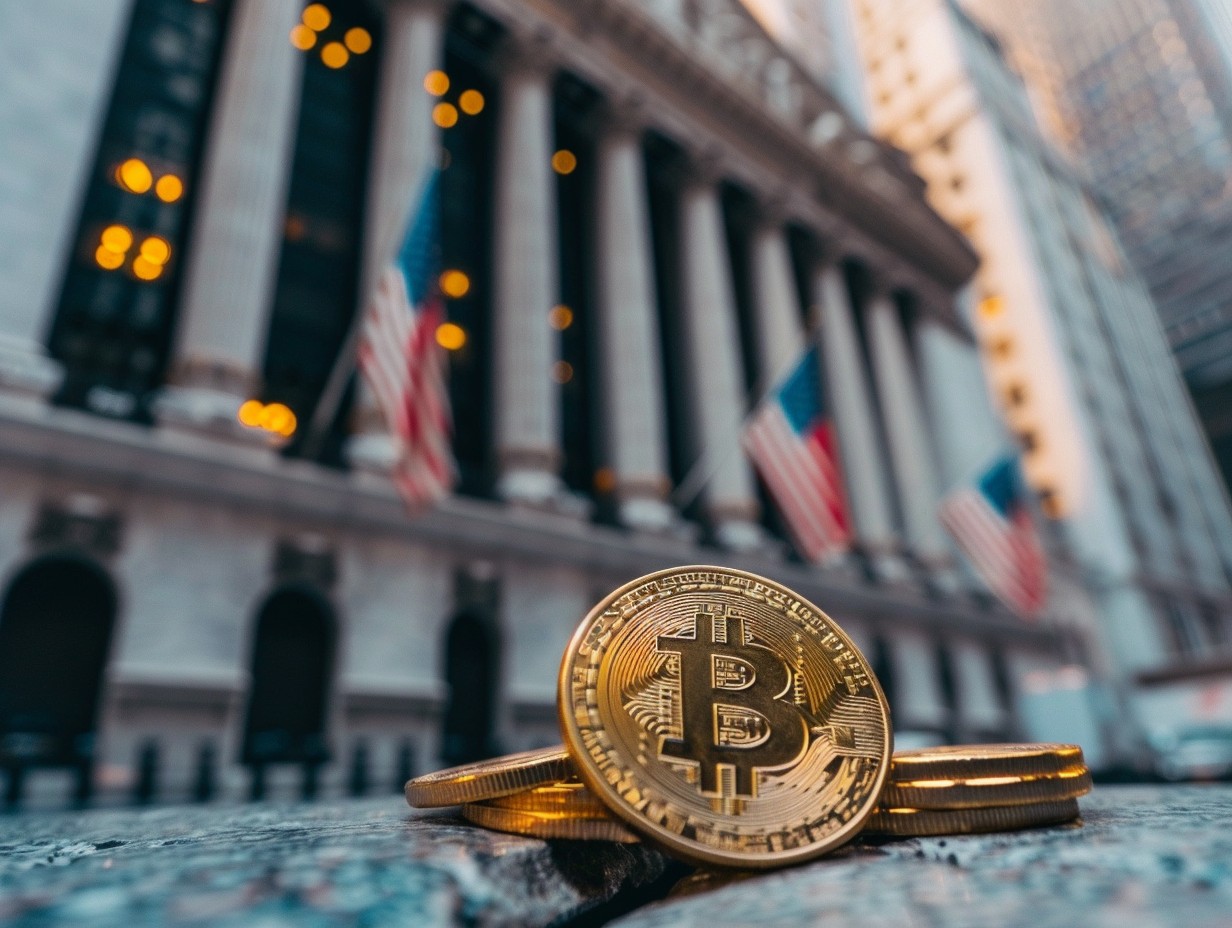Wall Street’s involvement in Bitcoin has significantly impacted its recent surge in value, leading to a frenzy of activity in the crypto market. Institutional investors, propelled by the launch of Bitcoin exchange-traded funds (ETFs), are pouring substantial amounts of cash into Bitcoin, driving its price to new heights.
This influx of capital from Wall Street reflects a growing acceptance and adoption of Bitcoin within traditional financial circles. Wall Street’s participation in Bitcoin has accelerated its rally and generated substantial profits for investors amid the cryptocurrency’s wild price fluctuations.
Wall Street’s role in Bitcoin’s skyrocketing market
Bitcoin has been the target of criticism and market setbacks for quite some time. In the eyes of Jamie Dimon, it is a mere “pet rock.” Longtime lieutenant to Warren Buffett, Charlie Munger deemed it “massively stupid.” Senator Elizabeth Warren of the United States considers it an exceptional instrument for individuals involved in terrorism, drug trafficking, or fraudulent activities.
Bitcoin has demonstrated that despite all of this, it will not disappear anytime soon. And what was once virtually ubiquitous opposition to it on Wall Street is gradually dissipating.
In recent weeks, the value of the cryptocurrency has surged to levels that previously astounded established investors years ago. It peaked at $40,000, then $50,000, and then, in recent days, $60,000. As many analysts have predicted, this resurgence has brought to light the fundamental demand from both digital and traditional investors.
As of this moment, the value of Bitcoin (BTC) stands at $62,066.51. This represents a 0.5% increase compared to the previous hour and a 0.1% decrease compared to yesterday. As of today, BTC is worth 21.5% more than it was seven days ago.
The current valuation of cryptocurrencies on a global scale is $2.44 trillion, representing a change of 1.01% over the last twenty-four hours and 117.65% over the past year.
At present, Bitcoin holds a market capitalization of $1.22 trillion, signifying a dominance of 49.82%. Stablecoins, meanwhile, have a market capitalization of $143 billion, or 5.87% of the total crypto market capitalization.
The billionaire founder and CEO of Galaxy Digital Holdings Ltd. and one of Bitcoin’s most ardent supporters, Michael Novogratz, stated in an interview, “Doesn’t matter what Jamie Dimon or Elizabeth Warren, his good buddy, said […] A lot of people believe there’s value here.”
This constant demand has presented the investing industry with an imperative dilemma. Even when it is presented in the new regulatory-friendly ETF packaging, the infamously volatile and scandal-prone asset can continue to be shunned by the legacy titans.
This is the strategy being implemented by Vanguard, an exceptionally conservative retailer. Alternatively, they may grant their clients their desires notwithstanding the extensive enumeration of potential hazards.
Wells Fargo & Co. and Bank of America’s Merrill Lynch are two of the most recent institutions to follow this trend; they provide access to new Bitcoin exchange-traded funds for a subset of their brokerage clients but prohibit their advisors from endorsing them.
Crypto’s future on Wall Street
“Wall Street will embrace whatever will raise their money so that doesn’t let you know whether it’s good or bad,” said Michael Rosen, chief investment officer at multi-asset investment firm Angeles Investments, adding that he believes faith in cryptocurrencies like Bitcoin is borderline delusional.
Well, it is not a delusion. Never have been. The 10 spot-Bitcoin ETFs currently trading in the United States have received approximately $8 billion in net inflows, with funds run by investment behemoths Fidelity and BlackRock accounting for the lion’s share.
According to Bloomberg Intelligence, BlackRock’s iShares Bitcoin Trust has collected $10 billion in just seven weeks, the fastest an ETF has ever done so, and a goal that the first gold ETF took more than two years to achieve after it was established in 2024.
As the price rose, a surge in activity resulted in a series of disruptions on Wednesday, as well as temporary displays of $0 balances for certain Coinbase users, the largest US cryptocurrency exchange.
For initial reasons, Jimmy Su, Binance’s chief security officer, warns that the positive atmosphere may lead to an increase in “rug pulls” – a form of scam in which a developer hypes up a cryptocurrency project to attract money only then runs away with the funds.





